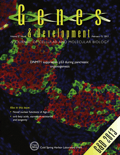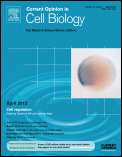
SEMINARS IN CELL & DEVELOPMENTAL BIOLOGY
metrics 2024
Exploring the Dynamics of Life's Building Blocks
Introduction
SEMINARS IN CELL & DEVELOPMENTAL BIOLOGY is a premier journal published by Academic Press Ltd - Elsevier Science Ltd, focusing on the vital domains of cell and developmental biology. With an impact factor that reflects its rigorous contributions to the field, this journal embodies the highest standards of academic excellence, currently ranking in the Q1 quartile for both Cell Biology and Developmental Biology categories as of 2023. Researchers and practitioners will appreciate its robust Scopus ranking, placing it within the top tiers of developmental biology and cell biology, with percentile ranks of 94th and 90th respectively, showcasing the journal's influential presence in the scientific community. The journal aims to disseminate comprehensive reviews, cutting-edge research articles, and significant advances in the understanding of cellular mechanisms and developmental processes, thereby catering to a diverse audience that includes researchers, scholars, and students dedicated to the life sciences. Given its commitment to open access, SEMINARS IN CELL & DEVELOPMENTAL BIOLOGY promotes widespread dissemination of knowledge, enhancing collaborative research efforts and driving innovation across biological disciplines.
Metrics 2024
 2.61
2.61 6.20
6.20 6.90
6.90 167
167Metrics History
Rank 2024
Scopus
IF (Web Of Science)
JCI (Web Of Science)
Quartile History
Similar Journals

JOURNAL OF CELL SCIENCE
Exploring the frontiers of cell biology research.JOURNAL OF CELL SCIENCE, with ISSN 0021-9533 and E-ISSN 1477-9137, is a distinguished publication in the field of Cell Biology, released by COMPANY BIOLOGISTS LTD in the United Kingdom. Since its inception in 1966, this journal has served as a vital platform for disseminating cutting-edge research and reviews that significantly advance our understanding of cellular processes and innovations. Currently positioned in the Q1 category within the 2023 rankings, this journal is recognized for its high impact and quality, holding a notable Scopus rank of 120 out of 285 in the Cell Biology category, placing it within the 58th percentile. While not an open-access journal, it provides extensive access options for readers and institutions, ensuring that pivotal research is accessible to a wide audience. With converged publication years leading toward 2024, JOURNAL OF CELL SCIENCE continues to be an essential resource for researchers, professionals, and students alike, fostering a deeper understanding of the intricate workings of cell biology.

STEM CELLS AND DEVELOPMENT
Fostering Collaboration in Cutting-edge ResearchSTEM CELLS AND DEVELOPMENT, published by Mary Ann Liebert, Inc., is a leading peer-reviewed journal dedicated to the rapidly advancing fields of stem cell biology and developmental science. With an ISSN of 1547-3287 and an E-ISSN of 1557-8534, the journal encompasses a broad range of topics central to understanding stem cells' roles in development and regeneration processes. It holds a prestigious standing within its category quartiles, ranking Q3 in Cell Biology, Q2 in Developmental Biology, and Q2 in Hematology for 2023. With its convergence from 2004 to 2024, STEM CELLS AND DEVELOPMENT fosters an innovative platform for researchers, professionals, and students to disseminate groundbreaking research, share insights, and explore novel therapeutic approaches. Open access options enhance the journal's visibility and accessibility, promoting a collaborative exchange of information among the scientific community. Positioned at the forefront of stem cell research and its applications, this journal is vital for anyone seeking to stay informed about the latest advancements and trends within these critical areas of study.

MOLECULAR AND CELLULAR BIOLOGY
Unveiling Cellular Mechanisms for a Brighter TomorrowMOLECULAR AND CELLULAR BIOLOGY, published by TAYLOR & FRANCIS INC, stands as a preeminent platform for researchers, professionals, and students engaged in the dynamic field of molecular and cellular biology. Established in 1981 and ongoing into 2024, the journal features cutting-edge research that spans across vital sub-disciplines, garnering a strong impact in its contributions to the scientific community. With an impressive Q2 ranking in Cell Biology and Q1 ranking in Molecular Biology for 2023, it consistently publishes high-quality articles that reflect the latest advancements and discoveries within the field. The journal is particularly well-regarded for its rigorous peer-review process and commitment to scientific excellence, making it an invaluable resource for those seeking to deepen their understanding of molecular mechanisms and cellular processes. Although not open access, the journal offers diverse access options for researchers to reach the latest findings. By maintaining a strong focus on biochemistry, genetics, and molecular biology, MOLECULAR AND CELLULAR BIOLOGY remains essential reading for anyone looking to contribute to or stay informed about significant developments within this pivotal area of study.

DNA AND CELL BIOLOGY
Fostering Innovation in Biological ResearchDNA AND CELL BIOLOGY, published by Mary Ann Liebert, Inc, is a distinguished journal in the realms of cell biology, genetics, and molecular biology, holding a notable position in its Q3 and Q2 quartile rankings across multiple academic categories as of 2023. With an ISSN of 1044-5498 and an E-ISSN of 1557-7430, this journal has been a pivotal platform for the dissemination of cutting-edge research since its inception in 1990, extending its coverage through 2024. Situated in the United States, the journal offers high-quality peer-reviewed articles, exploring significant advancements in biological sciences while fostering interdisciplinary collaborations within the research community. Though it currently does not offer open access, subscribed institutions and individual readers benefit from its rich repository of knowledge. The journal's rigorous standards and impactful content make it an essential resource for researchers, professionals, and students alike, aiming to stay at the forefront of discoveries influencing DNA and cellular dynamics.

International Journal of Biological Sciences
Connecting Researchers to the Pulse of Life SciencesInternational Journal of Biological Sciences (ISSN: 1449-2288, E-ISSN: 1449-2288) is a premier open-access journal published by IVYSPRING INTERNATIONAL PUBLISHING since 2005, located in Australia. With a commitment to advancing knowledge in the life sciences, this journal covers a wide spectrum of disciplines, including Applied Microbiology and Biotechnology, Cell Biology, Developmental Biology, Ecology, Evolution, Behavior and Systematics, and Molecular Biology, earning a distinguished Q1 ranking in these fields as of 2023. It stands out with exceptional Scopus rankings, placing in the top ranks across multiple categories, such as the 98th percentile in Ecology, Evolution, Behavior and Systematics and the 94th percentile in Applied Microbiology and Biotechnology. The journal fosters an open access philosophy, ensuring that research findings are readily available to the scientific community and the public, and invites original research articles, reviews, and commentaries. With its mission to disseminate high-quality research, the International Journal of Biological Sciences serves as an essential resource for researchers, professionals, and students seeking to deepen their understanding and drive innovation in biological sciences.

Russian Journal of Developmental Biology
Unraveling the mysteries of developmental biology.The Russian Journal of Developmental Biology, published by PLEIADES PUBLISHING INC, serves as a significant platform for researchers and professionals engaged in the field of developmental biology. With the ISSN 1062-3604 and E-ISSN 1608-3326, this journal focused on intricate biological processes and dynamic developmental mechanisms from 2005 until 2017. Although its coverage is currently discontinued in Scopus, it remains notable for its contribution to understanding the pivotal roles of biochemistry and molecular genetics within the context of development. As a publication situated in the competitive quartiles of the field and boasting an influential Scopus rank of #77 out of #78, it has made a unique mark in developmental studies. Researchers and academics seeking to enhance their knowledge of historical advancements in the discipline will find the journal a valuable resource, even as it navigates the transition away from active publication.

FOLIA BIOLOGICA
Fostering Discovery in Life SciencesFOLIA BIOLOGICA, published by Charles University Prague, First Faculty of Medicine, is an esteemed academic journal that has been contributing to the fields of Biochemistry, Cell Biology, Developmental Biology, Genetics, Immunology, and Molecular Biology since its inception in 1961. With an ISSN of 0015-5500, this journal serves as a vital platform for researchers and professionals to disseminate their findings and advance knowledge within these disciplines. Despite its current Category Quartiles ranking in the lower tiers (Q3 and Q4), FOLIA BIOLOGICA continues to provide valued insights and foster scholarly dialogue, particularly in its paralleled fields. The journal is headquartered in Prague, Czech Republic, and operates without Open Access options, which emphasizes its focus on curated, peer-reviewed content essential for academicians and students. By bridging theoretical and practical knowledge, FOLIA BIOLOGICA remains committed to enriching the scientific community and serving as a cornerstone for future research innovations.

TRENDS IN CELL BIOLOGY
Exploring the Frontiers of Cellular InnovationTRENDS IN CELL BIOLOGY, published by CELL PRESS, is a premier journal in the field of cell biology, recognized for its high-impact contributions since its inception in 1991. As a distinguished member of the Q1 quartile within its category, the journal holds an impressive Scopus ranking of #8 out of 285, placing it in the 97th percentile of the field, which underscores its reputation for excellence. The journal serves as an essential resource for researchers, professionals, and students who are engaged with groundbreaking advancements in biochemistry, genetics, and molecular biology. Although it is not open access, it provides critical insights into the latest trends, reviews, and advancements in cell biology, making it a crucial tool for anyone committed to understanding the complexities of cellular systems. With a focus on innovative and transformative research, TRENDS IN CELL BIOLOGY continues to shape the discourse in cell biology and enhance the scientific community's knowledge.

GENES & DEVELOPMENT
Pioneering Insights into Developmental Processes and GeneticsGENES & DEVELOPMENT, published by COLD SPRING HARBOR LAB PRESS, stands as a premier journal in the fields of Developmental Biology and Genetics, boasting a remarkable impact factor that reflects its prestigious position in the academic community—ranking Q1 in both disciplines as of 2023. Since its inception in 1987, this journal has been at the forefront of disseminating cutting-edge research, effectively bridging the gap between laboratory breakthroughs and their applications in health and disease. Researchers and professionals rely on GENES & DEVELOPMENT for its rigorous peer-review process and its commitment to promoting innovative studies that unravel the complexities of gene functions and developmental processes. With Scopus rankings placing it in the top percentile among its peers, this journal serves as a vital resource for students and established scientists alike, aspiring to expand their knowledge and contribute to the ever-evolving landscape of genetic and developmental research.

CURRENT OPINION IN CELL BIOLOGY
Transforming Understanding of Cellular DynamicsCURRENT OPINION IN CELL BIOLOGY, published by CURRENT BIOLOGY LTD, serves as a vital resource for scholars and professionals in the dynamic field of cell biology. With a solid Q1 ranking and impressive Scopus ranking of #33 out of 285 in the category of Cell Biology, this journal is recognized for its high impact and relevance among its peers, boasting an excellent percentile ranking of 88th. Established in 1989, it provides insightful reviews and perspectives that capture the latest developments and emergent trends in cellular research, making it indispensable for those aiming to deepen their understanding of cellular mechanisms and innovations. While the journal does not offer open access, its carefully curated content ensures that subscribers receive top-tier scholarly discourse. Situated in the heart of the United Kingdom, CURRENT OPINION IN CELL BIOLOGY continues to shape the conversation in a field that is critical to advancements in biochemistry, genetics, and molecular biology.